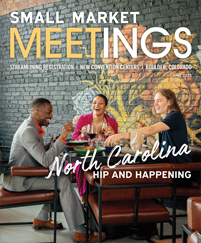Two of my friends take different approaches to their commutes. One faces her 45-minute drive with frustration. For 15 years, she’s complained about the 90 minutes wasted daily on the round-trip trek to work.
Another friend relishes her one-hour drive to the office. Long ago, she discovered audiobooks, and now podcasts, which turn 10 hours of commuting into a daily “reading” opportunity.
Friend one is unhappy at work. She believes higher-ups don’t appreciate her abilities. She feels stuck. By contrast, friend two is fulfilled and enthused about her career. She’s eager to learn.
I think daily reading is part, but not all, of the difference. Friend two is stimulating her brain as she sits at stoplights; she uses time many of us consider wasted for self-improvement. It’s indicative of her upbeat attitude and, in turn, her success in work and life.
During the past couple of years, there’s been a lot of talk about the need for continual growth. An AT&T exec got a lot of folks’ attention when he told The New York Times that those who aren’t spending at least five hours a week learning new technology will soon find themselves on the job sidelines. Dan Berger, founder of Social Tables, said that comment inspired a talk he gave this summer at MPI’s World Education Congress. Berger’s talk, “Future Proofing Your Career,” was about making a deliberate effort to learn new skills to prevent being forced out of a job by changes like automation and artificial intelligence. “The reality is you no longer have time to not have time,” Berger said. By the way, his company’s tagline is “Every day is a school day: We deliberately never stop growing and learning.”
Meeting planners are lucky, in a way. Theirs is a profession that demands lifelong learning. Chances are, you are already investing five hours or more in self-education, but in case you need some new ideas, here are a few.
Read more.
Articles I’ve read about the five-hour rule, the recommended minimum time to spend on personal growth per week, cite the reading habits of highly successful people. The examples are mostly rich, high-powered males who read for at least an hour, often more, each day. Of course, they probably have more time because they don’t do their own laundry and lawn. But even those with full work and home lives can squeeze in more reading time. Turn off the TV, turn the commute into a relaxing read, forget Facebook, and pick up Faulkner or Bronte. If you can’t find an hour a day, find 15 minutes. That adds up to 100 hours a year.
Connect more.
We learn from those around us, so you become wiser when you spend time with others. Socialization helps us live longer and enjoy better physical and mental health. So make your network look like the web of a busy spider. Reach out in many, varied ways. Volunteer for a cause you believe in, have lunch with a young entrepreneur, dine with your mentor. Make connections at conferences by coming armed with conversation starters. One example: when you sit down next to a stranger, introduce yourself, and then say, “Tell me about the best thing you’ve heard/learned in a session today” or “I need to learn about [blank]. Do you have any idea on how I can become more knowledgeable?”
Learn more.
School is never out, and anyplace can be a classroom. Could new software help you in your work? Find an online tutorial or course, and learn how to use it. Online learning opportunities abound, period. As Berger said, “There’s a ton of free resources online.” Does an upcoming conference tout sessions and speakers you’d like to hear? Sign up for it. If you prefer the traditional classroom, check out your local community college, university, community education, and courses offered through the Small Business Administration or local computer groups.
Travel more.
Meeting planners typically travel more than many businesspeople, but here again, attitude is key. View your travel, both business and leisure, as an adventure and an opportunity to have your eyes opened wider, and you’ll quickly become a scholar as you learn about another place’s history, culture and traditions. Seeing how things are done differently — not just in different countries but in different cities and states — can sometimes help you find new approaches to issues you deal with.












